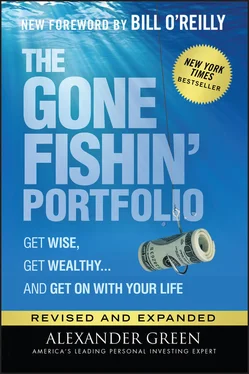Most people know this, of course. They just have trouble doing it.
However, more Americans are saving and investing than the press might lead you to believe. Never at a loss for a sensational story, the national media creates the impression that Americans are spending everything, swimming in debt and saving nothing.
In truth, the personal savings rate in the United States in 2019 was 7.6%, according to Statista, a leading provider of market and consumer data. In June 2020, during the depths of the COVID-19 pandemic, it spiked to 19%.
These figures deal only with personal savings made after taxes. Most working Americans, however, sock away a portion of their paycheck each month in a 401(k). It comes out of their checks pre-tax, not after tax. So the federal government doesn't count that as savings.
If you and your spouse both work, you could be putting as much as $39,000 between you in a qualified retirement plan each year (plus another $13,000 if you're both over 50). Your employer may be providing thousands of dollars in matching funds, too. Yet, according to official government statistics, you've “saved” nothing.
When you get your paycheck, you probably make a mortgage payment. Part of that money goes to pay down the principal, which builds equity. (You may even pay off a little extra from time to time.) But Uncle Sam treats money you put into a mortgage as consumption. So, once again, none of this is “savings” according to official statistics.
If you're contributing to an IRA or 401(k), you're on the right path. If you can save 10% or more of your after-tax income, too, that's even better.
Of course, some Americans aren't funding a 401(k) or doing any other saving. Some don't own homes and, of those who do, many aren't paying down their mortgages. Rather, they've been borrowing against their equity, adding debt.
However, these folks don't represent the national trend. According to the Federal Reserve, U.S. households’ 2019 total net worth—the total value of all assets, including stocks, bonds, bank accounts, houses and retirement funds, after subtracting debt—was over $100 trillion. That's $17.7 trillion higher than it was four years ago. And it's more than 12 times what total net worth was in the United States in 1980. Total American wealth is clearly rising, not falling.
But to join that group whose net worth is rising the fastest, you probably need to save more.
In The Millionaire Next Door , Thomas Stanley and William Danko reported that most Americans with a net worth of a million dollars or more follow a remarkably similar path. They maximize their earned income, minimize their expenses, live beneath their means and religiously save the difference. It may sound pedestrian, but do this long enough and one day you just may wake up with a seven-figure net worth.
It means making sacrifices, however. As we go through life, we quickly learn that expenses seem to rise to meet the income available. In our wonderful capitalistic society, there is never a shortage of fabulous products and services vying for our attention.
However, it is possible to say no.
Several years ago, I was invited to do a segment about saving and investing on Fox TV in Tampa, Florida. Near the end, the interviewer suddenly popped this question: “What do you say to those viewers out there who say they just can't save anything ?”
As it happened, I had just returned from a two-week investment expedition to China. During my trip, I had visited with many laborers who made less than $150 a month. Yet the average Chinese worker—acutely aware that the government provides no social safety net—saves over 47% of his income. (I'm not suggesting for a moment that an American could live on anything close to this. But it was a powerful lesson in fiscal discipline nonetheless.)
“Too many Americans don't save anything,” I reminded the moderator, half-jokingly, “because they're spending money they don't have on things they don't need to impress people they don't like.” Judging by the look on his face, that wasn't the answer he was expecting.
Look, I realize that when you're young and starting out in life, saving may not be a priority. When you get older and you have kids (and perhaps elderly parents) to support, saving can be tough, too.
But most of us could get by—by hook or by crook—on at least 10% less than what we're living on today. If we pay ourselves that 10% (or more) first, it will make a world of difference 10, 20 or 30 years down the road.
Of course, it's not hard times that keep most Americans from saving what they should. It's a lack of discipline, something at which I used to excel.
As a young man in my 20s, I worked as a stockbroker in a local firm. I soon began earning a six-figure income. Not long after, I bought a spanking-new lakefront house, got the ski boat, the Jaguar XJ6 and all the other toys. I saved virtually nothing.
When my friends came over for parties—which were frequent—most of them assumed I was rich. I was nothing of the sort. Wealth is not the same thing as income. If you earn a lot of money and blow it every year, you're not rich. You're just living high. Wealth is what you accumulate, not what you earn. And it certainly can't be measured by what you spend.
Fortunately, because I was working in the financial services industry, I learned the importance of saving before it was too late. Take a look at Table 2.1, for example. It demonstrates the enormous advantage of beginning to save early. No matter what your age, it's never too late to begin.
TABLE 2.1Effects of Saving $500 a Month at a 10% Annual Return
| Year |
Savings |
| 1 |
$6,335.14 |
| 5 |
$39,041.19 |
| 10 |
$103,276.01 |
| 20 |
$382,848.45 |
| 30 |
$1,139,662.66 |
As Stanley and Danko wrote in The Millionaire Next Door …
Affluent people typically follow a lifestyle conducive to accumulating money. In the course of our investigations, we discovered seven common denominators among those who successfully build wealth.
1 They live well below their means.
2 They allocate their time, energy, and money efficiently, in ways conducive to building wealth.
3 They believe that financial independence is more important than displaying high social status.
4 Their parents did not provide economic outpatient care.
5 Their adult children are economically self-sufficient.
6 They are proficient in targeting market opportunities.
7 They chose the right occupation.
In short, they discovered that your net worth is essentially a result of the choices you make. To save as much as you can, you need to make the right career decisions, the right lifestyle decisions and the right spending decisions. It takes forethought. It takes discipline. And it means making hard choices.
If this sounds old-fashioned, so be it. Most of us are not talented enough to found and run some fabulous new technology company. Your income alone is not likely to make you rich. So the quickest way to jump-start your investment program is to start saving more.
A MATTER OF HOW WE VALUE THINGS
You do need balance in your, life too. You can't be happy—now or in retirement—living like a miser. The trick is to find the right balance between saving and spending. Each day there are choices you can make that will help you—or hinder you—on your way to financial independence.
If you keep in mind the choice between consumption and freedom, it becomes easier. Do you really need that new car—or would you rather keep the old one and become free to live where you want, with whom you want, doing what you want? Do you really need that new set of golf clubs—or would you rather keep your old ones and live where you want, with whom you want, doing what you want?
Читать дальше












